Part of your blog’s success will be attributed to your ability to target the right keywords. In this article, we’re going to show you how to use the Google Wonderwheel to find popular keywords. And remember, your keyword list should continually be evolving as newer and longer search terms become prevalent among your target audience.
1. Go to Google and conduct a search for a keyword you want to target. In this case, fat loss.
2. After results show up, look to the left hand side bar

3. You should now see a wheel of keywords, like this:
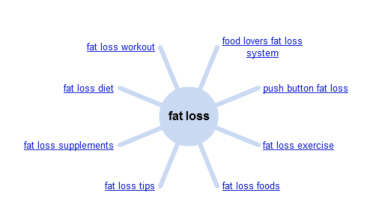
4. Meanwhile, as you find keywords, enter them into a spreadsheet to determine both the level of competition and their monthly searches
- This will tell you whether the words are worth going after
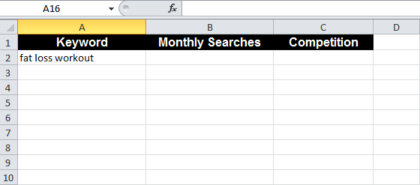
5. Dig deeper into these keywords by clicking on any of the populated results. This will reveal what is referred to as ‘longer tail keywords’. Generally, the longer the keyword, the less competition and less monthly searches. Again, stick to keywords that are related to what you’re promoting.
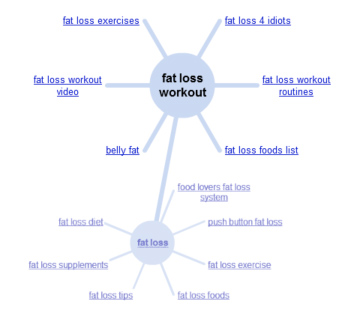
6. Go ahead and try to compile a list of at least 50 keywords. This will give you 50 different blog posts that you can later use.
7. Next, go to Google and type in “Google keyword tool”.
- With this tool we are going to look at the monthly searches and later the competition.
- Ideally, we want to target keywords with a high monthly search count while low competition.
- This makes it easier to get ranked for that keyword.
8. Copy and paste your list of keywords into the Google keyword tool.
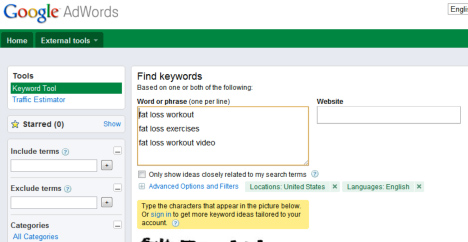
9. Now you should now have a list of keywords related to your keyword list you just pasted in.

10. With this list, you first want to remove the “Local Search” category since you aren’t a local business and you want to turn off ‘broad’ match and select ‘exact’ match.

11. Now you’ll want to take the ‘monthly search’ numbers for your keywords and enter them into your spreadsheet.

12. General rule of thumb, target keywords with at least 100 searches per month
13. Also, you can enter one of your competitor’s website domains and Google will then populate a list of keywords they are using.
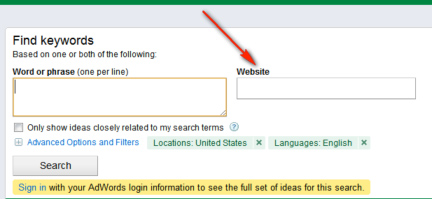
14. To determine the level of competition for each keyword on your list, copy each keyword, go to Google and then paste it into search bar, while adding quotations around it.
- Tip:
- Ideally you want to target keywords with competition that is less than 100,000

15. Now go through your spreadsheet list and enter in the level of competition for each.

16. In this example, none of the keywords would be a good fit. Remember, they need to have more than 100 monthly searches while having less than 100,000 competing pages.
- Tip:
- Sometimes you can make an exception to the rule in regards to monthly searches. For example, if a keyword as 50 searches a month and low competition then it might be worth your time.

